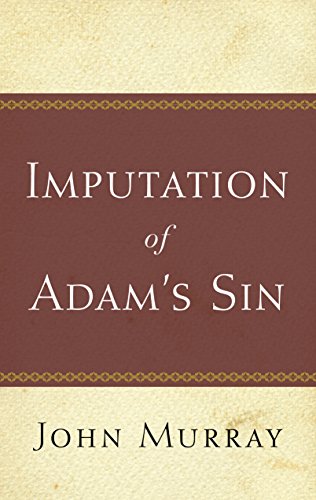Quotes about Guilt
The way to no longer feel guilty is not to deny guilt, but to face it and ask for God’s forgiveness.
The Grace and Truth Paradox, 2003, Used by Permission from Eternal Perspective Ministries, www.epm.org, p. 77.
Guilt comes from within. Shame comes from without.
We tend to drag up our old sins, that we tend to live under a vague sense of guilt…we are not nearly as vigorous in appropriating God’s forgiveness as He is in extending it. Consequently, instead of living in the sunshine of God’s forgiveness through Christ, we tend to live under an overcast sky of guilt most of the time.
Copied from The Gospel for Real Life by Jerry Bridges, © 2002, p. 67. Used by permission of NavPress – www.navpress.com. All rights reserved. Get this book!
This is not make-believe. You are indeed guilty in yourself, but God no longer regards you as guilty, because the guilt of your sin has already been borne by Christ as your substitute. The sentence has been served. The penalty has been paid. To use Paul’s expression, you have died to sin’s guilt.
Copied from The Gospel for Real Life by Jerry Bridges, © 2002, p. 177. Used by permission of NavPress – www.navpress.com. All rights reserved. Get this book!
Remorse prior to approaching the cross is of God, but after true repentance beneath the cross such self-reproach is of Satan. Our Adversary wants us to believe that Christ’s blood is not sufficient to cleanse confessed sin. We become susceptible to his lie when we begin to doubt the power of the cross fully to cancel our guilt, for then we will begin to live (and fall) in the strength of our own efforts.
The Power of Mercy by Bryan Chapell taken from Holiness by Grace by Bryan Chapell, copyright 2001, Crossway Books, a division of Good News Publishers, Wheaton Illinois 60187, www.crosswaybooks.org. Page 192.|The Power of Mercy by Bryan Chapell taken from Holiness by Grace by Bryan Chapell, copyright 2001, Crossway Books, a division of Good News Publishers, Wheaton Illinois 60187, www.crosswaybooks.org. Page 192.
Remorse for sin does have a place in the Christian life, but we should be very sure what function it serves. Guilt should drive us to the cross, but grace must lead us from it. Guilt makes us seek Christ, but gratitude should make us serve Him. Guilt should lead to confession, but without a response of love as the motive of renewed obedience, true repentance never matures.
The Power of Mercy by Bryan Chapell taken from Holiness by Grace by Bryan Chapell, copyright 2001, Crossway Books, a division of Good News Publishers, Wheaton Illinois 60187, www.crosswaybooks.org. Page 192.
God doesn’t want us to punish ourselves to erase our guilt. He punished his Son to cancel our guilt. God will not build His kingdom on our pain because He is building it on His mercy.
The Power of Mercy by Bryan Chapell taken from Holiness by Grace by Bryan Chapell, copyright 2001, Crossway Books, a division of Good News Publishers, Wheaton Illinois 60187, www.crosswaybooks.org. Page 192.
All of this longing for guilt comes from the conviction that, if we will make ourselves feel bad enough and carrying a burden of remorse long enough, we will merit God’s grace. But who really wants us pressed down and paralyzed by a burden of guilt? Satan. He is our accuser (see Rev.12:10). Nothing pleases him more than for Christians to beat themselves down into paralyzing depression or unproductive despair. The Bible does not say our guilty feelings or compensating recriminations will make us right with God. God makes us right with God. He does not want us bowed down in despair. He is the lifter of our heads (Ps. 3:3).
The Power of Mercy by Bryan Chapell taken from Holiness by Grace by Bryan Chapell, copyright 2001, Crossway Books, a division of Good News Publishers, Wheaton Illinois 60187, www.crosswaybooks.org. Page 191.|The Power of Mercy by Bryan Chapell taken from Holiness by Grace by Bryan Chapell, copyright 2001, Crossway Books, a division of Good News Publishers, Wheaton Illinois 60187, www.crosswaybooks.org. Page 191.
There is a proper role for what theologians call subjective guilt (how I feel). This feeling of remorse for wrong is a result of the Holy Spirit revealing our sin to our consciences (this we call “conviction”). However, amid our feelings of remorse we must remember that our objective guilt (the judgment that God imposes for our sin) has been entirely satisfied by Christ (Eph. 2:14-16; Col. 1:19-20).
The Power of Mercy by Bryan Chapell taken from Holiness by Grace by Bryan Chapell, copyright 2001, Crossway Books, a division of Good News Publishers, Wheaton Illinois 60187, www.crosswaybooks.org. Page 189.
God’s answer for your guilt is not to explain it away by circumstances that have victimized you, but to call you to own your sins fully and to entrust them all to Jesus Christ by faith. Jesus Christ is our substitute. He has taken our penalty.
Crushed for Our Inequities by Mark Dever and Michael Lawrence taken from It Is Well, by Mark Dever and Michael Lawrence, copyright 2010, Crossway Books, a division of Good News Publishers, Wheaton Illinois 60187, www.crosswaybooks.org, page 57.
One of the great dangers with constant guilt: we learn to ignore our consciences. If we are truly sinning, we need to repent and implore the Lord to help us change. But if we aren’t sinning, if we are perhaps not as mature as we could be, or are not as disciplined as some believers, or we are making different choices that may be acceptable but not extraordinary, then we should not be made to feel guilty. Challenged, stirred, inspired, but not guilty.
We will give an account one day because we are accountable, and there is a standard. God is the One before whom we are accountable, and our lives will be compared against His perfect character. This is why we feel guilty, because deep down we know we are guilty. Our guilty feelings and sense of shame come because we have violated God’s good and wise commandments.
Jesus came and died in our place. He was our substitute. Because He was without sin, He was able to pay the penalty for our sins. His death for us means that we can be free from guilt and reconciled to God. Jesus’ death is the only real answer to our guilt.
Wrong ways to deal with guilt: 1. Deny that you are really guilty – “To stop feeling guilty, I need to throw off those antiquated standards [found in the Bible] and live by my own.” [Yet] what happens when you try to live by your own standards and you fail to keep even them? You are right back where you started. 2. Try to be a better person – Stop doing the behavior that is bothering your guilty conscience. [Yet] Most of us are not able to keep our [our resolutions] and our guilty feelings return. 3. Compare yourself to others – We…decide we don’t need to feel guilty as long as we can find someone who is acting worse than we are. [Yet] putting someone else down might give us momentary pleasure, but it doesn’t get rid of the nagging feeling that we haven’t measured up. [And when we realize our sin in doing this, it] just adds to our burden of guilt.
Summarized from: Freedom from Guilt, New Growth Press, 2008, p. 4-8, Used by Permission.
Today’s culture aggressively and systematically tries to silence the conscience. People have been taught to ignore any and all guilt feelings conscience produces, viewing them as harmful to their self-esteem. They believe their problems stem not from their sin but from external factors beyond their control. Sin and guilt are viewed as psychological issues, not moral and spiritual ones.
Our culture has declared war on guilt. The very concept is considered medieval, obsolete, unproductive. People who trouble themselves with feelings of personal guilt are usually referred to therapists, whose task it is to boost their self-image. No one, after all, is supposed to feel guilty. Guilt is not conducive to dignity and self-esteem. Society encourages sin, but it will not tolerate the guilt sin produces. But the answer to dealing with guilt is not to ignore it – that’s the most dangerous thing you can do. Instead, you need to understand that God graciously implanted a powerful ally within you to aid you in the battle against sin. He gave you your conscience, and that gift is the key to bringing you joy and freedom.
Keeping a Pure Conscience, The article originally appeared (www.gty.org/Resources/Articles/23) at www.gty.org. © 1969-2008. Grace to You. All rights reserved. Used by permission.
Don’t buy the lie that cultivating condemnation and wallowing in your shame is somehow pleasing to God, or that a constant, low-grade guilt will somehow promote holiness and spiritual maturity. It’s just the opposite! God is glorified when we believe with all our hearts that those who trust in Christ can never be condemned. It’s only when we receive his free gift of grace and live in the good of total forgiveness that we’re able to turn from old, sinful ways of living and walk in grace-motivated obedience.
The Cross Centered Life, 2002, Used by permission of Sovereign Grace Ministries, p. 39-40.
Here’s how to beat condemnation. Confess your sin to God. Then believe in Him. Exercise the gift of faith that God has given you to believe that Jesus died for the very sins you’re being condemned for. The punishment He received was for you. His resurrection is proof that God accepted Jesus’ sacrifice. The sins of your past and the sin you just committed were all atoned for; you need carry their weight no more.
The Cross Centered Life, 2002, Used by permission of Sovereign Grace Ministries, p. 43.
Guilt is a universal experience. Everybody at some time or other has had the bad feeling of not doing what he ought to have done. Even people who deny that there is any such thing as right and wrong are trapped by the law of God written on their hearts.
Jesus Is Precious Because He Removes Our Guilt, February 21, 1982, Used by Permission of DesiringGod.org.
The oldest and most revered tactic for avoiding the misery of guilt is religion. This tactic may be the most deceptive because it comes closest to the truth. It recognizes what the intellectual and physical strategies generally ignore: that the ultimate cause of guilt is that there is a righteous God whose will for his creatures is ignored or defied. It recognizes that under every pang of conscience in the human soul there is the silent, often unexpressed conviction, “I have gone against God.” The means that religion has developed to deal with this guilt is to try to placate or appease God with good works or religious ritual. Religious people know they owe God a great debt for their disobedience. But they often make the terrible mistake of thinking they can pay it back through good works and the performance of religious duties.
Jesus Is Precious Because He Removes Our Guilt, February 21, 1982, Used by Permission of DesiringGod.org.
God has dealt with our guilt. It is the best news in all the world. It is the only strategy that owns up to the truth of God’s righteousness and the depth of our debt before Him. Once you have been grasped by God’s way of dealing with your guilt, every other way will seem thin and superficial and utterly inadequate by comparison. And you will rejoice with me that “Jesus Is Precious Because He Removes Our Guilt.”
Jesus Is Precious Because He Removes Our Guilt, February 21, 1982, Used by Permission of DesiringGod.org.
The universal problem of guilt is not owing to the fact that we have failed our fellow man, but because we have failed God.
Jesus Is Precious Because He Removes Our Guilt, February 21, 1982, Used by Permission of DesiringGod.org.
The universal problem of guilt is not just a problem of how to feel better, but how to be right with God. The secular devices to lessen the misery of our guilt will always fail sooner or later because they ignore the main problem of human existence. We are guilty before God. It is His law we have broken. It is His glory from which we fall so short (Romans 3:23). Every person in this [world] is personally accountable to God and will meet Him some day either guilty and condemned, or acquitted and destined for joy.
Jesus Is Precious Because He Removes Our Guilt, February 21, 1982, Used by Permission of DesiringGod.org.
God’s holiness and righteous glory have been desecrated, defamed, and blasphemed by our sin. It is with a holy God that we have to do in our guilt! And there can be no justification, no reconciliation, no cleansing of our conscience, unless the holiness of God is honored and the defamation of His righteousness is repaired. The urgency of our problem with guilt is not that we feel miserable, but that God’s name has been blasphemed. We live in a day with such a horrendously inflated view of human potential and such a miserably tiny view of God’s holiness that we can scarcely understand what the real problem of guilt is. The real problem is not, “How can God be loving and yet condemn people with such little sins?” The real problem is, “How can God be righteous if He acquits such miserable sinners as we?” There can be no lasting remedy for guilt which does not deal with God’s righteous indignation against sin. That’s why there had to be a sacrifice. And not just any sacrifice, but the sacrifice of the Son of God! No one else, and no other act, could repair the defamation done to the glory of God by our sins. But when Jesus died for the glory of the Father, satisfaction was made. The glory was restored. Righteousness was demonstrated. Henceforth it is clear that when God, by grace, freely justifies the ungodly (Romans 4:5), He is not indifferent to the demands of justice. It is all based on the grand transaction between the Father and the Son on the morning of Good Friday at Calvary. No other gospel can take away our guilt because no other gospel corresponds to the cosmic proportions of our sin in relation to God.
Jesus Is Precious Because He Removes Our Guilt, February 21, 1982, Used by Permission of DesiringGod.org.
If you think that the guilt which prepares us to receive the gospel is merely the bad feeling that comes from a low self-image or sagging self-esteem, then the gospel you preach will be just the kind of man-centered, ego-stroking pap that has emasculated the pulpits of our land and obscured the glory of God’s mercy.
Hardly anyone experiences the crush of real guilt! We have failed to see that what usually passes for guilt is in fact just more sin, because it is the bad feeling we have, not from our failure to trust God’s promises but from our failure to preserve our image as cool, self-sufficient people. Most of what passes for guilt feelings is an expression of pride. We do something impulsive that hurts someone and feel remorse. But does our remorse come from a deep spiritual grief that we have despised God by not trusting His promises and not waiting for His wisdom and help? Or does it more often come from the fact that we did not preserve our image as cool and self-sufficient? Real guilt is very rare!
Real guilt is the crushing sense of fear and remorse at the thought of having despised almighty God by casting a vote of no-confidence against His word of promise and counsel. Real guilt is radically God-centered. Satan’s substitute is the bad feelings we get from a wounded ego… It is based squarely on pride… This kind of guilt produces no repentance (2 Corinthians 7:10).
No sin can be crucified either in heart or life, unless it be first pardoned in conscience, because there will be want of faith to receive the strength of Jesus, by whom alone it can be crucified. If it be not mortified in its guilt, it cannot be subdued in its power.
After the fall came sin. Sin leads to guilt. Guilt leads to fear. Yet if you are in Christ Jesus, all your sin and guilt has been taken away. You are forgiven, accepted and loved by the Father. With God fully on your side, you have nothing to fear. Worship God by enjoying the freedom He secured for you in Christ.
Guilt is a universal experience for all humans. In His mercy, God has made all of us to experience guilt when we sin against Him. From birth, Romans 2 tells us that “the work of [God’s] Law written [on our] hearts.” Therefore the verse goes on to say that our “conscience [bears] witness and [our] thoughts alternately [accuse or defend us] (Rom. 2:15). It doesn’t matter how much our society or government ignores or explains away God’s law. The violation of God’s law universally results in guilt for all people.
This guilt issue follows us throughout our Christian walk. And as we mature in Christ we learn the value of dealing with it rightly and the dangers of dealing with it wrongly. We learn that even though God has forgiven us, we can sense it when not God, but Satan “the accuser” (Rev. 12:10) seeks to remind us of our failures and faults. We learn how to engage in spiritual battle to prevent false guilt from setting in. We learn to not trust in our feelings as it pertains to guilt, but fully stand on the promises from God’s Word. We learn to allow that which makes us guilty to only be the things that violate God’s Word. We learn the difference between real guilt and an overactive conscience. We learn the need to keep excelling in Christ, but refuse to allow the conviction to grow spiritually become a continual self-loathing low-grade guilt that we aren’t doing enough for Jesus. We learn to greater recognize our sinfulness and yet the incredible promise that we can always “draw near with confidence to the throne of grace, so that we may receive mercy and find grace to help in time of need” (Heb. 4:16).
So when we sin, even as Christians, we experience guilt. We experience the shame of disappointing our heavenly Father. We are broken and contrite. The Lord wants us grieved over the times we offend Him. It breaks fellowship with Him. It breaks His heart and it should break our heart as well. We experience guilt. But we don’t stay in the guilt. Again, the guilt turns us to Christ. We confess the sin, repent of the sin and experience the blessing of His full pardon. 1 John 1:8-9, “If we say that we have no sin, we are deceiving ourselves and the truth is not in us. If we confess our sins, He is faithful and righteous to forgive us our sins and to cleanse us from all unrighteousness.” Here is how David put it in Psalm 32:5. “I acknowledged my sin to You, and my iniquity I did not hide; I said, ‘I will confess my transgressions to the LORD’; and You forgave the guilt of my sin.”
In Romans 3:23 we read, “For all have sinned and fall short of the glory of God.” Everyone experiences guilt because everyone is guilty of violating God’s law. James 2:10 says, “For whoever keeps the whole law and yet stumbles in one point, he has become guilty of all.” Everyone deserves God’s just condemnation in hell. But God in His love and mercy sent us a Redeemer. He sent us One that would take our sins upon Himself. He sent us Jesus Christ. And after receiving our sins, the Father spent His wrath upon Him. The punishment for all our sins was received by Him. Thus with the penalty of sin now taken away for those in Christ, we can receive a full pardon for our sins. Remove our sins from God’s presence in Christ and naturally you remove the guilt as well.
There is one reason God allows all humans to experience guilt. And that’s so we might run to Him for true healing and forgiveness. Guilt is the symptom that drives us to the cure. And that cure is Jesus Christ.
So why does our society first dismiss and then rationalize and justify sin and finally declare that biblical vices are in actuality virtues to be celebrated? The reason is very clear – they do it to minimize their guilt. Yet guilt is a universal response when we violate God’s laws, regardless of how we chose to reshape and redefine them.
Similar to the instructions we pass along to our children for their physical safety, our Father in heaven gives us His instruction for our spiritual safety. Yet like ignorant and carefree children, we at times ignore His teaching. We at times want to do things according to our own estimation apart from the Scriptures. And when we do this, God in His mercy allows us to feel pain. Guilt is a gift from God that makes us sensitive to sin. Another word for this that we commonly use is conviction.
What do you do with the person who says, “I’ve asked God to forgive me about this, but I still feel guilty”? I hear that statement over and over again. I usually say to these people, “If you still feel guilty, then pray to God again. But this time don’t ask Him to forgive you for the sin that is haunting you. Rather, ask Him to forgive you for insulting His integrity by refusing to accept His forgiveness. Who are you to refuse to forgive yourself when God has forgiven you? When God promises to forgive His people when they repent, He is not playing games. If He says He will forgive you, then He will forgive you. And if God forgives you, you are forgiven.”
Perhaps the reason you feel guilty is because you are guilty. The answer to your guilt problem is not rationalization or self-justification, but forgiveness. The price of forgiveness is repentance. Without it there is no forgiveness and no relief from the reality of guilt.
Godly sorrow and worldly sorrow. The first one leads to life, but the latter shoves us into a spiritual grave. Worldly sorrow only bemoans getting caught or weeps for what was lost. It never grieves for the wrong committed. Godly sorrow produces different results. When we experience godly sorrow, we are deeply grieved for the wrong we committed. We desire to ask forgiveness, to repair the damage, to make reparation for the harm done; not merely to protect ourselves from pain or regain what we didn’t want to give up. In a word, we repent.
Getting Past Guilt: Overcoming Barriers to Feeling Forgiven. See more at: http://www.insight.org/resources/articles/encouragement-healing/getting-past-guilt.html?referrer=https://www.google.com/#sthash.Pk5C35Qn.dpuf.
The deepest sense of guilt comes not when you sin against law but when you sin against love.
On occasions when guilty feelings arise over sins already confessed and forsaken, reject such feelings as false guilt. The Lord has been true to His promise to forgive.
Got Questions? How should a Christian deal with feelings of guilt regarding past sins, whether pre- or post-salvation? Used by Permission.
[Why our guilt often continues:]
1. The person may be involved in things for which he or she should feel guilty.
2. The person does not believe what God says about forgiveness.
3. The person wants to use guilt as a way to punish himself to pack back for his own sins. This betrays a heart of pride that thinks it can deal, in some small way, with its own sins.
Blame in on the Brain? P&R Publishing, 1998, p. 124. Get this book!
The way to eliminate shame associated with sin is to admit sin, be confident that God forgives sin, and engage in battle against it.
Guilt is an excellent warning light that says something is wrong. Yet when it persists too long, it provides fuel for Satan’s lies and strangulates spiritual growth.
Jesus Christ came down to save us, not only from the guilt, but also from the power of sin… Tell me, are not many of you offended at what has been said already?… Are not others ready to cry out, if this be true, who then can be saved? Is not this driving people into despair?… I would to God…that the whole world was filled with this despair.

















